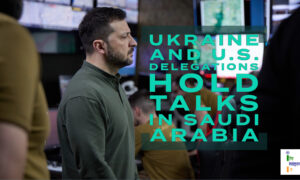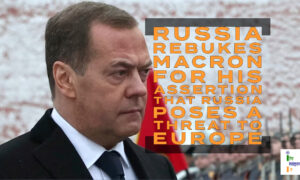
After refusing an order from ECOWAS to restore ousted President Mohamed Bazoum the coup leaders in Niger have shut down the nation’s airspace
Niger’s coup leaders have closed the country’s airspace after rejecting an ultimatum from the Economic Community of West African States (ECOWAS) to reinstate deposed President Mohamed Bazoum by Sunday, August 6, 2023 or risk military intervention.
ECOWAS has condemned the coup, imposing severe economic and travel sanctions, including cutting off Niger’s power supply. The bloc’s defence chiefs have agreed on a possible military action plan, including when and where to strike if the country’s detained leader is not released and reinstated.
The move came as tens of thousands of coup supporters gathered at a stadium in Niger’s capital – Niamey, to cheer on the generals who seized power or the National Council for the Safeguard of the Homeland (CNSP).
In a statement read out on national television, the Spokesperson for CNSP – Amadou Abdramane, said there had been a pre-deployment of forces in two Central African countries in preparation for intervention.
Abdramane said, “In the face of the threat of intervention, which is becoming clearer through the preparation of neighbouring countries, Niger’s airspace is closed from this day on Sunday… for all aircraft until further notice.”
He further said, “Niger’s armed forces and all our defence and security forces, backed by the unfailing support of our people, are ready to defend the integrity of our territory.”
Bazoum was detained on July 26, 2023 and the Commander of the Presidential Guard – General Abdourahmane Tchiani, later proclaimed himself the new leader. The military said it seized power because of insecurity and the economic situation. The military takeover has been internationally condemned by the former colonial power – France, the European Union (E.U.), the United States (U.S.) and the United Nations (U.N.).
The coup in Niger on July 26, 2023, is the seventh in West and Central Africa in 3 years. It has rocked Africa’s Sahel region, which is battling armed groups linked to al-Qaeda and ISIL (ISIS) and is among one of the poorest areas in the world.
There are fears about this potentially widening into a regional conflict and people are also very nervous about armed groups like ISIS and Al-Qaeda taking advantage of any further chaos in the region. Amid the threat of regional war, West African countries are scrambling to pick a side. Nigeria, Senegal and Ivory Coast have said they would send troops, although the Nigerian Senate has pushed back against President – Bola Tinubu’s request for deployment approval, asking him to explore options other than using force.
Meanwhile, Burkina Faso and Mali, ruled by military-backed Governments, have said any intervention in Niger would be considered a declaration of war against them. Algeria, which shares a long land border with Niger, has warned against a military solution.
France, Niger’s former colonial ruler, which has about 1,500 soldiers in the country said it would firmly back whatever course of action ECOWAS takes after the deadline expired. However, it did not specify if that included military assistance.
Meanwhile, Russia has opposed the military intervention in Niger, while the head of its Wagner mercenary group has offered the services of his fighters to the country.







